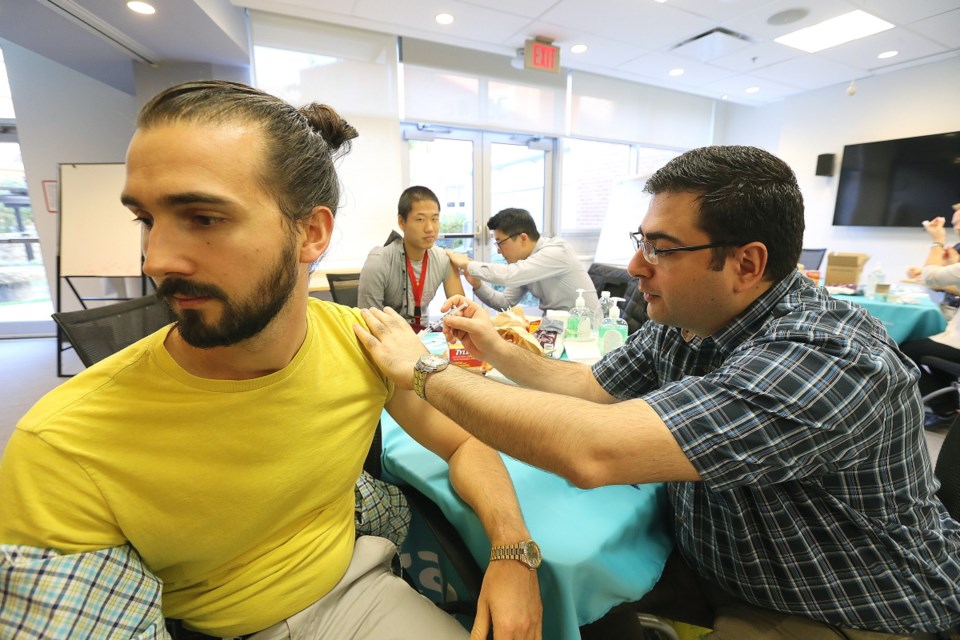It is still a little early to determine which influenza strains will appear this season, but sporadic cases of H3N2 have already shown up as Island Health prepares for its public-inoculation clinics.
H3N2, the predominant flu strain in 2016-17, can be especially hard on the elderly.
The flu kills approximately 3,500 people and leads to more than 12,000 hospitalizations each year in Canada.
It is an infection of the nose and throat with such symptoms as fever, headache, runny nose, cough and fatigue.
“We have been rolling out vaccine to family doctors’ offices, pharmacists and our public-health units, as well,” said Dr. Geoff McKee, Island Health’s resident medical health officer. “We’ve tried to make it as available as we can.”
Vaccine given with a needle is most common, but the vaccine can also be given through nasal spray in some instances.
Frequent hand washing is an important step in avoiding the flu, McKee said.
He said there are several groups considered to be at greater risk from the flu.
“Our main concern with influenza in the community is those who are more vulnerable, including young children, older adults and those with underlying and chronic illnesses that could put them at higher risk of complications,” McKee said.
“We encourage those who may be in contact with people who may be vulnerable to also get the flu shot.
“Really, we advocate for as much of the community being immunized as possible.”
An estimated 231,354 doses of vaccine were administered last flu season in Island Health’s jurisdiction.
There have been 260,000 doses ordered for the upcoming season, with more available if needed.
McKee said the start and finish of the flu season can vary from year to year, but it generally starts in the fall, peaks in the winter — often in the new year — and slows down in the spring.
Public-health flu clinics, pharmacies and physicians are all options for getting inoculated.
For more information, including clinic locations, go to the Island Health website at viha.ca/flu or the Immunize B.C. website immunizebc.ca/clinics/flu.



